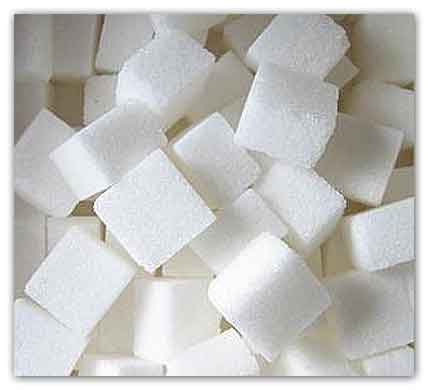News and Insights for
your best life. Online since 1998
- Home Health
- Breaking news
- In caso di...
- Per saperne di
più... - Medicina occidentale
- Medicine complementari
- Medicina cinese
e agopuntura - Omeopatia
- Fitoterapia

Non-caloric artificial sweeteners (NAS) consumption is considered safe and beneficial owing to their low caloric content, yet supporting scientific data remain sparse and controversial.
Researchers demonstrate that consumption of commonly used (NAS) formulations drives the development of glucose intolerance through induction of compositional and functional alterations to the intestinal microbiota.

These NAS-mediated deleterious metabolic effects are abrogated by antibiotic treatment, and are fully transferrable to germ-free mice upon faecal transplantation of microbiota configurations from NAS-consuming mice, or of microbiota anaerobically incubated in the presence of NAS.
To explore the impact of various kinds of sweeteners on the microbes living in the human intestine (referred to as the gut microbiome), an Israeli research team first turned to mice.
One group of mice was given water that contained one of two natural sugars: glucose or sucrose; the other group received water that contained one of three artificial sweeteners: saccharin (the main ingredient in Sweet’N Low®), sucralose (Splenda®), or aspartame (Equal®, Nutrasweet®). Both groups ate a diet of normal mouse chow.
To their surprise, the researchers discovered that many animals in the artificial sweetener groups—especially those that drank saccharin-sweetened water—developed a condition called glucose intolerance, which is characterized by high blood glucose levels and is an early warning sign of increased risk for developing type 2 diabetes. In contrast, the animals that drank sugar water remained healthy.
Using DNA sequencing to analyze the artificial sweetener group’s gut microbiome researchers found a distinctly different collection of microbes than in the animals who drank sugar water.
The next step was to distinguish whether these changes in the microbiome resulted from high blood glucose, or caused it. When the researchers used antibiotics to wipe out the artificial sweetener group’s gut microbes, their blood glucose levels returned to normal—evidence that the gut microbes were actively causing glucose intolerance.
Transplanted microbes from both groups of mice into the intestines of a mouse strain that had been raised in a sterile environment from birth showed that the germ-free mice that received microbes from the artificial sweetener group developed glucose intolerance; those getting microbes from the sugar group did not.
But what about humans? The research team examined clinical data from 400 people taking part in an ongoing nutrition study: compared to people who didn’t use artificial sweeteners, long-term users of artificial sweeteners tended to have higher blood glucose levels and other parameters often associated with metabolic diseases like diabetes, obesity, and fatty liver.
Next, the researchers asked seven healthy human volunteers, who had never previously consumed foods or beverages containing artificial sweeteners, to consume the daily maximum dose of saccharin allowed by the U.S. Food and Drug Administration for six consecutive days.
Of the seven volunteers, four developed glucose intolerance, while three maintained normal blood glucose regulation.
The researchers then took intestinal microbes from human volunteers and transplanted them into germ-free mice. Microbes from humans with glucose intolerance also triggered glucose intolerance in the mice, while microbes from humans with normal blood glucose had no effect.
For more informations
Artificial sweeteners induce glucose intolerance by altering the gut microbiota.
Suez J, Korem T, Zeevi D, Zilberman-Schapira G, Thaiss CA, Maza O, Israeli D, Zmora N, Gilad S, Weinberger A, Kuperman Y, Harmelin A, Kolodkin-Gal I, Shapiro H, Halpern Z, Segal E, Elinav E
NIH
Taking a New Look at Artificial Sweeteners
MDN
del Dott. Turetta
Quali sono i problemi o le disfunzioni che possono giovarsi di un intervento omeopatico d'urgenza e, di conseguenza, come dovrebbe essere un ideale armadietto medicinale omeopatico casalingo.- Home -
- Health -
- Depressione -
- Sexuality
- Environment -
- Food -
- Musica -
- Capirsi -
- Grafologia -
- Ridere
Copyright © 1998/2018 www.mybestlife.com tutti i diritti sono riservati eccetto quelli già di altri proprietari.
.In caso di
Pubblicità
Per saperne di più su
Pubblicità
Pubblicità
Pubblicità
Pubblicità


